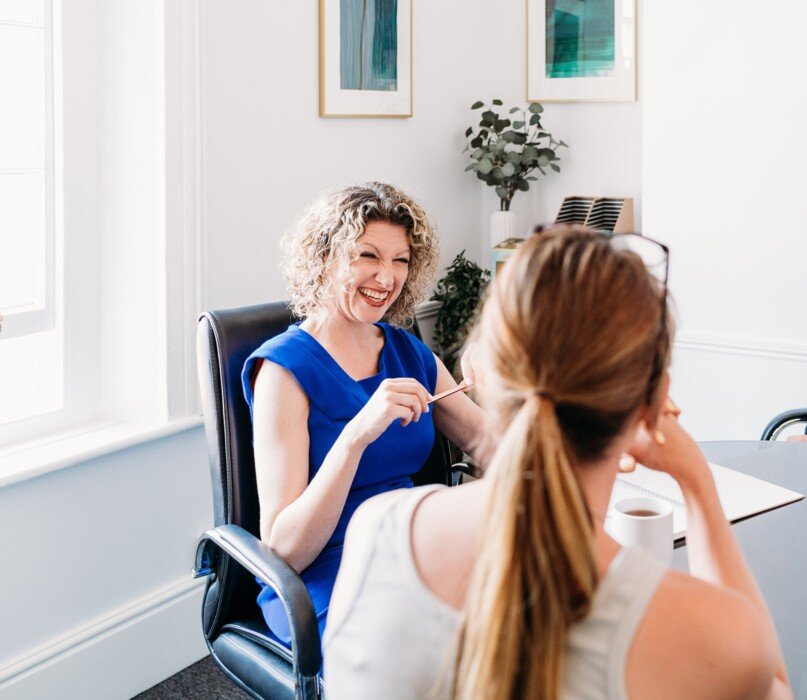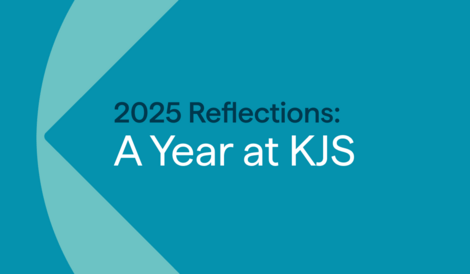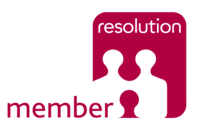Mediation - what are the benefits of early collaboration in separation and divorce?

If you are splitting up with your partner, it's natural that you may feel concerned by the prospects of conflict, a (potentially costly) legal battle, and emotional strain. 'Talking things through' may be a great way to resolve issues in many aspects of life but, when it comes to separation and divorce, that can feel like the hardest thing to do.
This is where mediation comes in. It's a process where a neutral person, "the mediator", helps you and your partner to communicate so that you reach agreements and avoid going to court. In this blog, we explain the key benefits of mediation and discuss how collaborating - from as early as day one - can bring real advantages for you and your family.
What is mediation and how can it help me?
Mediation is becoming more and more popular with couples who want to divorce but at the same time avoid the emotional stress and potential expense of going through the courts. Mediation offers you the opportunity to meet with a professionally trained, impartial third party, a mediator, who facilitates open, respectful discussions. Understandably, emotions often run high when couples are separating, and having objective, impartial guidance can be invaluable in reaching agreements that are acceptable to both of you.
For over thirty years, mediation has been used as a form of Alternative Dispute Resolution (ADR), facilitating discussions and resolving family matters swiftly. Today, family courts place even greater emphasis on mediation and other 'out of court' approaches, such as arbitration or collaborative divorce. In a court case, if you cannot reach an agreement, a judge may impose a decision and you are legally bound to obey, whether you agree with it or not. In contrast, a mediator will guide your discussions and help you find mutually acceptable solutions.
Compromise is key: you may not get exactly what you want, but through listening to each other and calm negotiation, you can find outcomes you are both happy to embrace. Many people find mediation much easier, less time-consuming, and significantly cheaper than going to court.
Mediation can help with:
- child arrangements
- short-term financial arrangements
- the division of assets
- cohabitation matters
It is also particularly good for resolving complex or unusual family issues.
Mediation offers several distinct benefits which include:
- not going to court
- keeping the focus on the most important matters
- avoiding misunderstandings
- minimising stress
- reaching faster, clearer resolutions
- reducing costs (mediation fees are usually shared)
There's no doubt that early mediation opens the lines of communication for couples and this can help to prevent escalation. You can read more about mediation in the Government's Family Mediation Leaflet. Citizens Advice also provides helpful information about using mediation to help you separate.
When is mediation not a good idea?
Mediation is not appropriate if either of you has been subject to violent, threatening, or coercive and controlling behaviour in your relationship. This could leave somebody unable to express themselves freely without feeling fearful or intimidated.
How does mediation work?
Assessment
Traditionally - and with most family law firms - mediation begins with an individual meeting between yourself and the mediator. Then the mediator will typically have the same meeting with your partner. However, at K J Smith Solicitors we often see the couple together in the very first meeting and have found this an excellent way to progress things quickly and amicably. We will take the time to understand your personal circumstances and decide if mediation is suitable for you.
Whether you want that first meeting by yourself or with your partner, the mediator will ensure you understand the process and costs, and you can highlight the issues you want to resolve. Mediation always works best when both people have a proper understanding of the issues involved and how the process works.
Mediation sessions
Sessions can be held virtually or in person and are facilitated by your mediator. With their guidance, you'll talk through your concerns, negotiate and work towards an agreement. Your mediator may recommend additional specialist help if they think it would be of benefit, and both of you can take independent legal advice at any stage of the process.
Mediation typically comprises 3-5 sessions of 1-2 hours each, but for some people, the process can be even quicker, resolving disputes in just one or two sessions. Here at K J Smith Solicitors, we have had couples who opted for a joint initial consultation with our mediator (which is free of charge) and then had parenting plans and other agreements in place after just two sessions of mediation! Everything finalised extremely quickly and easily.
Formalising the proposals
When you've reached an agreement, the mediator sends a summary to both of you. If you wish, you may also consult an independent family law solicitor who can draw up a legally-binding document.
Take a neutral and fair first step towards mediation with a "joint consultation".
K J Smith Solicitors are committed to methods of alternative dispute resolution. Our qualified mediators have a wealth of experience and have seen first-hand how early mediation encourages collaboration and finds resolution faster, bringing a better outcome for everyone.
We provide a unique opportunity for you to attend a FREE initial joint consultation. Unlike the typical approach where one person consults a mediator first, our method of meeting both of you at the same time prevents any sense of bias or favouritism. This consultation allows you both to understand the mediation process, ask questions, and see how it could work for you.
If you'd like to explore mediation (together or separately), contact us to arrange your free consultation.
Conclusion
If you're unsure about what you want to do, get in touch and we will find a solution that is right for you. You may also find it helpful to read Resolution's leaflet about choosing the right process.
For many, mediation is an extremely positive and effective method of settling matters after separation. At K J Smith Solicitors, our mediators take the time to understand your situation and move forward at a pace that feels comfortable for you. We're on hand to advise and help you reach an agreement, guiding you with compassion and expertise. If you and/or your partner would like to explore mediation, contact us to arrange your free 45 minute consultation. Discover how collaboration from day one can make a real difference to you and your family.











